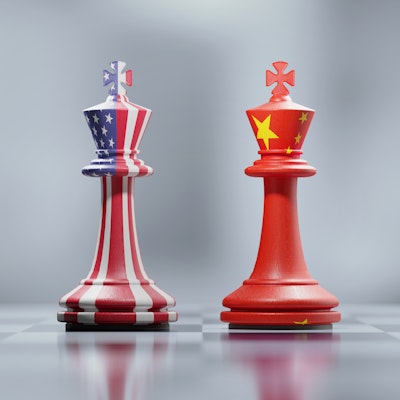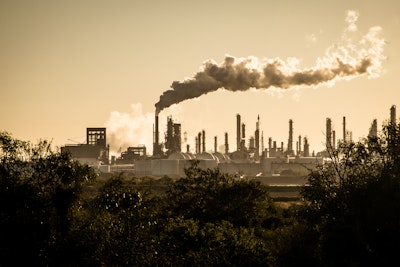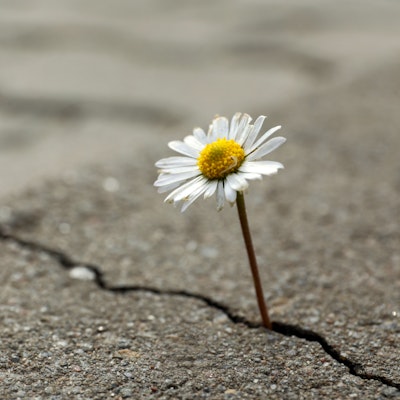
Red, Brown, and Green: China’s Bid for Cleaner Energy

If China does something, or doesn’t do something, that’s essentially what matters in the world today.
Setup
China is the world’s biggest energy consumer and carbon emitter. It needs more energy, and it wants it cleaner. So it’s pursuing the biggest push for low-carbon energy the world has ever seen. But China’s green drive is messy and uncertain – full of geopolitical fighting, technological uncertainty, and investor risk. What’s happening? Who’s profiting? And will it do much for the planet?
- 2015 Festival
- Environment
- World
China has the most aggressive climate goals in the world — but will it meet them?
Journalist Jeffrey Ball’s experiences with air pollution in China are almost cliche today, with air so chock-full of particle pollutants that basic face masks don’t do the trick. Yet there’s more to the picture, as Ball explains. China is in the midst of a self-imposed green revolution, and the Chinese government has set audacious goals for reducing pollution in almost every sector of their economy.
Big IdeaChina is pursuing the biggest and most important push for clean energy the world has ever seen. It’s not clear yet if that push is going to succeed.Jeffrey Ball
Now that China has embarked on this unprecedented mission, the questions remains if it will work. There are no comparable plans in history to use as benchmarks for success, and even then scientists are skeptical that China’s plan alone will make enough of a difference to counteract the damage that climate change is causing in China.
What’s really motivating China's push for clean energy
China took the world by surprise when it decided to take on clean energy in ways that many other developed economies haven’t. Jeffrey Ball thinks that there are a couple answers as to why, none of which is a moralistic understanding of their role in climate change:
How can China be a leader in both pollution and clean energy?
It seems a like a contradiction at first: a country that has the most ambitious clean energy goals in the world also ranking as one of the largest polluters. To solve this contradiction, Jeffrey Ball explains, you have to remember where China started.
Change Comes Every Five Years
Ball uses the example of China’s coal power plants to illustrate this phenomenon. Despite China’s massive efforts to update and even phase out coal power plants, China’s emissions from coal are still some of the highest in the world. When China started their clean energy push coal was the principal driver of their economy and their industry, and disrupting that level of pollution will take extraordinary effort.
Solar is a microcosm of China’s clean energy ambitions
China is often cited as the world’s largest producer of solar panels (which it is), but Jeffrey Ball points out that until the late 2000s almost none of those panels were being installed in China? . Although solar has immense promise as a clean energy source, Ball describes how international economics and national priorities, not reducing pollution, led to solar’s rise in China:
Learn More
Additional Information
Explore More
Environment


Scholars are still uncovering information about Britain’s involvement in the transatlantic slave trade and its era of slavery, piecing together how the wealth generated from t...


Each year brings more destructive natural disasters and growing evidence of the challenging future we face if we don’t address climate change. But the biggest cause of climate...


Relations between the United States and China have become increasingly tense over the past few years. Trade wars have escalated, and U.S. national security experts are bracing...


If we do absolutely nothing to mitigate climate change, scientists estimate the toll could be $38 trillion a year in damages. Industrialized countries like the United States,...

The recognition that all things are connected is at once a scientific principle and a philosophical touchstone. Humans, animals, and the environment are intertwined in complex...

Three people whose lives have been irrevocably changed by the Israel-Palestine conflict share their stories of profound loss, grief and forgiveness.

A couple of degrees makes a world of difference — megafires, rising seas, failing infrastructure, and food systems require our immediate attention. Demands on dwindling natura...


Sizable electorates around the world are flocking to populist candidates who promise power, domination and a return to better times. The global experiment in liberalism seems...


Conflict and suffering can bring out the worst in people, but it can also bring out the best. This is one of the lessons New York Times columnist Nicholas Kristof has learned...

Women are crucial to the climate movement, but their voices are often underrepresented and their work goes under-supported. Meet just a few of the women from this year’s Aspen...

The war in Ukraine continues to reshape European security and global alliances, while the war in Gaza raises urgent questions about humanitarian aid and international interven...


The grim stream of news from the Middle East has been making it more and more difficult to hold onto hope for peace. When and how will the conflict in Gaza end? And could war...

As one of the foremost reporters of his generation, Nicholas Kristof has been witness to century-defining events and atrocities around the world. How has he managed to weaponi...


Heat is now the top weather-related cause of death in the U.S., killing more people than hurricanes, floods and tornadoes combined. An environmental journalist and two city ch...

Every transition comes with tradeoffs, and even clean energy carries negative consequences. As they mine for critical minerals or build solar arrays on sensitive land, clean e...

Africa is a rising giant. By 2050, one in four people on the planet will be African, and by 2060, Africa will have the largest labor force in the world. A former Nigerian pres...

It sounds like sci-fi: Scientists are beaming solar energy from space, subbing seaweed for plastic and brightening clouds to reflect sunlight to lower temperatures in a warmin...

With the war in Ukraine in its third year, Putin shows no sign of tempering his military ambitions. Though global pressure on Russian investment has so far failed to crush the...

Of the 1.2 billion youth aged 15 to 24 worldwide in 2019, close to half were out of school, out of work or underemployed, and this number will continue to grow. Listen as glob...









